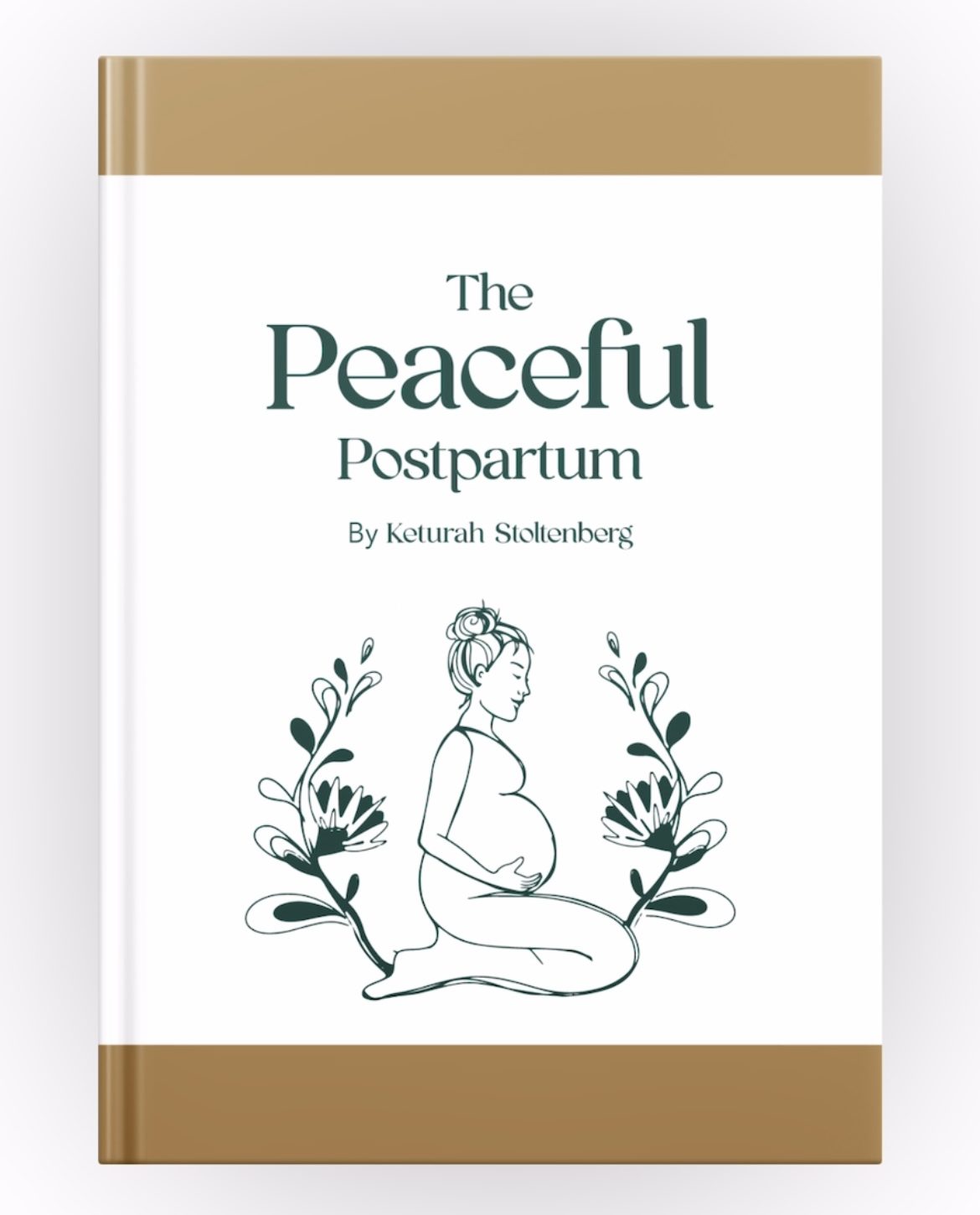When and How to Seek Mental Health Support as a Mum
Interview with Courtney Wilton from Nourished Psychology
When should a mother consider reaching out for support, and what early signs of distress might go unnoticed?
Navigating the first few months after childbirth can be challenging, as low mood and mood swings may be mistaken for the baby blues. Recognising the early signs of postpartum depression is crucial; symptoms like irritability, anger, and frequent crying are common yet often overlooked. If these feelings persist for more than a couple of weeks, it’s important for new parents to seek support. Trusted sources like a GP, close friend, midwife, or lactation consultant can provide valuable assistance. Understanding and addressing postpartum depression is vital for both mental health and overall well-being during this transition.
How can a mama distinguish between normal parenting struggles and the need for professional help?
If it is starting to have a significant impact on their wellbeing, such as:
- Avoiding leaving the house
- Increased irritability
- Low mood
- Lethargy
- Trouble sleeping (which is hard to distinguish during the baby phase!)
- No energy
- Not enjoying things they previously did
What red flags indicate she should seek support sooner rather than later?
- Intrusive thoughts of wanting to run away, or harm oneself or the baby/children
- Constant feelings of sadness, with no ability to summon joy or happiness
What are the first steps if a mother feels she needs help but doesn’t know where to start?
While Google is usually the last place we want to find information, it can be a good starting point if we’re unsure what to ask or who to ask.
Search:
- ‘Mental health support for mothers’
- PANDA
- Gidget Foundation
- ‘ForWhen’ Helpline
- Not Another Onesie has many incredible mental health support practitioners
What should she expect from the first session, and what if she doesn’t find the right fit? Do you have any tips on finding the right fit?
Finding the right fit is the most important thing! Clients must feel seen, supported, validated, and heard. The first session is an information-gathering session, so it may involve a lot of talking as the clinician gathers insights to create the best path forward. It’s important that you feel comfortable and have input. If the fit isn’t right (as hard as it is), speak up, the therapeutic relationship is the strongest predictor of positive outcomes.
Can a parent seek support even if unsure what’s wrong, just that something feels off?
Reaching out to say, “I don’t feel great” can be an effective way to start exploring one’s feelings. Speaking to someone completely removed from their life provides a safe, judgement-free space to unpack what is going on or what thoughts are running through their mind.
How does stigma impact a mother’s willingness to seek help, and what advice would you give to those who feel they should ‘handle it all’ alone?
There are many reasons someone avoids therapy or doesn’t ask for help, and motherhood adds another layer.
The ‘perfect mother’ myth suggests that women should naturally know what to do. When they struggle, they often feel like failures. Many worry that admitting their struggles will be misunderstood or have consequences.
It’s crucial to normalise that parenting is hard. Asking for help isn’t a weakness; it’s a powerful step. Support and connection improve emotional well-being. You’re not alone in this journey.
How can partners, family, or friends support a struggling mother who is hesitant to seek help?
- Notice when it’s more than just ‘baby blues’ or hormones
- Ask how she really is, and give space for the answer
- Gently suggest speaking to someone, offer to help find a therapist or go with her
- Express concern kindly and without judgment, let her know you’re there
How can seeking support improve a mother’s wellbeing, relationships, and parenting experience?
Improving one’s sense of self and recognising their own capacity and capability is vital. Having a supportive presence is essential, someone who reminds them they are not alone on this journey. This connection can foster a deep sense of purpose. When a mother feels validated, seen, and heard, it reinforces her experiences. Having someone to lean on can make the complexities of motherhood feel more manageable, allowing for a more confident and empowered approach to this significant role.
What are the risks of ignoring struggles for too long, and how can therapy be a preventative measure rather than just a last resort?
Preventative support for women in their motherhood journey is paramount to ensuring their success. Early intervention can significantly help maintain attachment with children and foster healthier family dynamics.
However, the risks associated with delaying help for mental health issues can be substantial, particularly when women are unaware of their deteriorating condition until they are severely unwell. This delay can lead to a lack of enjoyment in what should be a beautiful season of life. Furthermore, untreated mental health challenges may contribute to breakdowns in relationships with partners, family, and friends, underscoring the necessity for proactive support and timely intervention.
Resources you may be interested in

Beyond Birth: Postpartum Preparation & Support Program with Rad Parents
$150.00
Rad Parents
Beyond Birth is an incredibly comprehensive postpartum preparation and support program, and it’s perfect for you if you’re bringing home a baby for the very first time.
By the end of the program, you (and your partner, if you have one) will have created a comprehensive, kick-ass postpartum plan, with my guidance. And you’ll feel so much more confident going into parenthood.

Holding the Mother: Matrescence Coaching With Elise Clement
$150.00
Elise Clement Coaching & Psychotherapy
Holding the Mother with Matrescence coaching.
Matrescence coaching is a powerful way to feel validated as you unpack the challenges, discomfort and doubts arising in this phase of your life.

The Peaceful Postpartum by Keturah Stoltenberg
$47.00
Motherhood With Keturah
Introducing ‘The Peaceful Postpartum’ eBook, a 52-page, interactive guide to planning for a postpartum of rest, healing, nourishing food, and a supportive village.
You may also be interested in...
Learn about the support you didn't know you needed.
We have cherry picked the most useful resources for your fourth trimester so that you don't have to waste precious hours searching.

Article - Elisha Wildblood and Louise Barton (Not Another Onesie)
The Silent Struggle of Motherhood
Becoming a new mother is a beautiful and life-changing experience, but it can also be very challenging.

Article - Ana Ristov (Lively Lifestyle Psychology)
Conversations to Have With Your Partner Before Baby Arrives
Most people plan for birth with a detailed birth plan, but what about a postpartum care plan? Talking openly before your baby is born about expectations, responsibilities, and emotional support can make the adjustment smoother. From who’s doing the night feeds to how you’ll support each other through exhaustion, these conversations are essential for protecting your partnership, strengthening your mental health, and laying the foundation for a connected family.

Article - Louise Barton & Elisha Wildblood (Not Another Onesie)
Motherhood & Friendships – Why Everything Feels Different & How to Navigate the Change
The shift in friendships after having a baby is real, and it’s something almost every mother experiences. Let’s dive into why friendships change after motherhood, how to navigate the emotional shifts, and ways to find a new support system that actually fits your life as a mum.

Article - Elise Clement (Psychotherapy & Coaching)
Managing Emotions as a New Mother
Managing emotions as a new mother can be tough. This post shares simple tips to help you process feelings, set boundaries, and support your well-being. Early motherhood is an emotional rollercoaster. This post shares practical tips to help you process feelings and nurture your well-being.

Interview - Louise Barton + Elisha Wildblood (Not Another Onesie)







